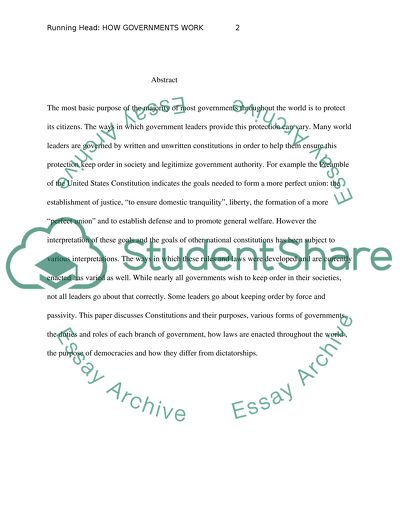Cite this document
(“How Governments Work Essay Example | Topics and Well Written Essays - 4000 words”, n.d.)
Retrieved from https://studentshare.org/history/1396555-how-governments-work
Retrieved from https://studentshare.org/history/1396555-how-governments-work
(How Governments Work Essay Example | Topics and Well Written Essays - 4000 Words)
https://studentshare.org/history/1396555-how-governments-work.
https://studentshare.org/history/1396555-how-governments-work.
“How Governments Work Essay Example | Topics and Well Written Essays - 4000 Words”, n.d. https://studentshare.org/history/1396555-how-governments-work.


